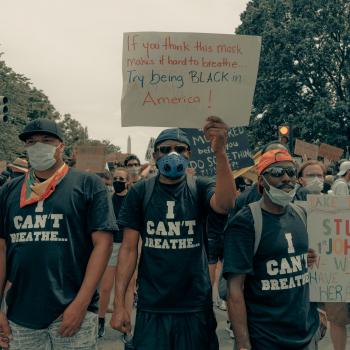
I’m often afraid to open the comments’ section on social media posts; I think many other people feel the same way as well. There’s just too high a chance of being bombarded with Islamophobic remarks, personal attacks, or witnessing verbal “wars” between other people.
The Internet seems to bring out the ugliest side of people, which they usually keep hidden from those they interact with in person. Their most demeaning, condescending, and heartless thoughts spill onto the screen with no hesitation or filter. The moment they spot something they disagree with, they feel the need to argue. And if someone disagrees with them, even if it is not done with a malicious intent, it will be treated as an attack. You know the expression, “The best defense is offense?” Online behavior represents that perfectly.
It’s easy to let the culture around us influence our behavior, but Islam provides us with a moral code that transcends time and place.
The challenge for us Muslims now (or any person who wants to preserve their decency, really) is how we will respond to this phenomenon. It’s easy to let the culture around us influence our behavior, but Islam provides us with a moral code that transcends time and place. The Prophet (saws) said, “Whoever believes in Allah and the Last Day (i.e. the Day of Judgment) should say what is good or keep quiet” [Narrated in Sahih Bukhari].
That’s hard, isn’t it? I know it is for me! And the Internet makes it even easier to run our (virtual) mouths, so it’s a tough challenge. But as the hadith says, how we speak is a sign of our faith in the Afterlife. We will be held accountable for even our smallest actions, so it’s in our best interest to think before we speak. I think it’s one of the biggest struggles of our lives, if we are really trying to stick to the instructions given in the hadith. After all, it’s human nature to want to defend ourselves.
If someone is truly hateful towards us, insulting them back will not suddenly make them feel ashamed of their actions.
Even the most pious Muslims struggled with this at times. For example, Aisha (ra) said that a group of people once came to Prophet Muhammad (saws) and said, “As-Saamu ‘Alaikum” (Death be on you — a subtle, yet cruel play on words to twist the expression “as-salaamu ‘alaikum,” which means peace be on you).”
Aisha got upset, and rightfully so! She defended her husband, the Prophet (saws) by saying, “(Death) be on you, and may Allah curse you and shower His wrath upon you!” The Prophet (saws) said, “Be calm, O Aisha! You should be kind and lenient, and beware of harshness and bad actions/words.” This hadith shows that the Prophet (saws) truly walked the walk. He kept his cool, even when people were spewing hate speech at him. How many of us would honestly be able to do that?
It’s not worth it to respond to every hateful comment. Yes, we have a right to defend ourselves (without crossing limits, such as by using vulgarities or hurting/insulting others), but it’s more honorable and noble in the sight of God to simply turn away from the provocation when our words will not do any good. (Obviously, this does not apply if there is genuine fear of physical danger.) You can’t fight fire with fire. If someone is truly hateful towards us, stooping to their level by insulting them back will not suddenly make them feel ashamed of their actions. They will most likely retaliate with an even worse insult — and often times, these insults aren’t even directed at us, but at Islam. Where’s the good in that?
In the end, we need to remember that we are all accountable for our own speech and behavior.
We are also not allowed to mock other people’s beliefs, even if they are contradictory to Islam. Allah (swt) says, “Do not insult those they call on other than Allah, lest they insult Allah in enmity out of ignorance. Thus We have made pleasing to every community their deeds. Then to their Master is their return, and He will inform them about what they used to do” [Qur’an 6:108].
In the end, we need to remember that we are all accountable for our own speech and behavior. Just because someone else is acting a certain way doesn’t mean that it’s okay for us to blindly follow suit. We need to practice the sunnah of gentleness by praying for the guidance of those who wish us harm, saying only what’s good, and leading by example through mercy and compassion, inshaAllah.
Follow Mostly Muslim on Facebook HERE.
Want your voice to be heard? JOIN OUR TEAM or send your guest submission to [email protected]! Visit the “Contribute to MM” page for more details.












